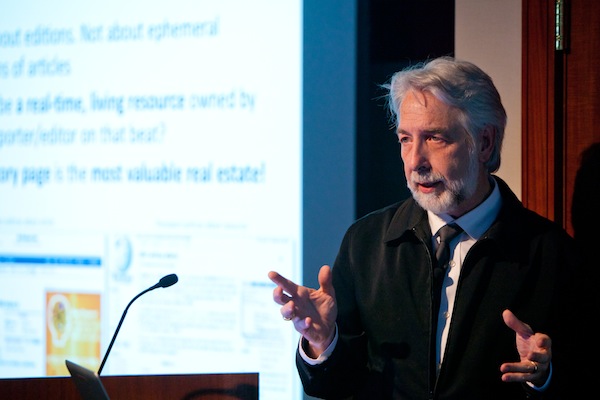

Richard Gingras, the head of news products for Google, visited the Nieman Foundation last Friday to talk about Google’s approach to news and information discovery, but also the pace of change in technology and how it has affected the future of news. Recently Gingras has spent time talking about his 8 questions that will define the future of journalism.
On Friday he said newspapers need to completely rethink their approach to news, how the design of their site responds to the flow of audience and the ways news companies can separate their business model and content model to help increase audience and generate revenues. Below you’ll find the full video of his talk.
“I do feel these are extraordinary times. I do feel that we in a sense are at the beginnings of a renaissance with regards to journalism,” he said. “I know that’s hard for many people to hear given the pain of the disruption to the traditional sources.”